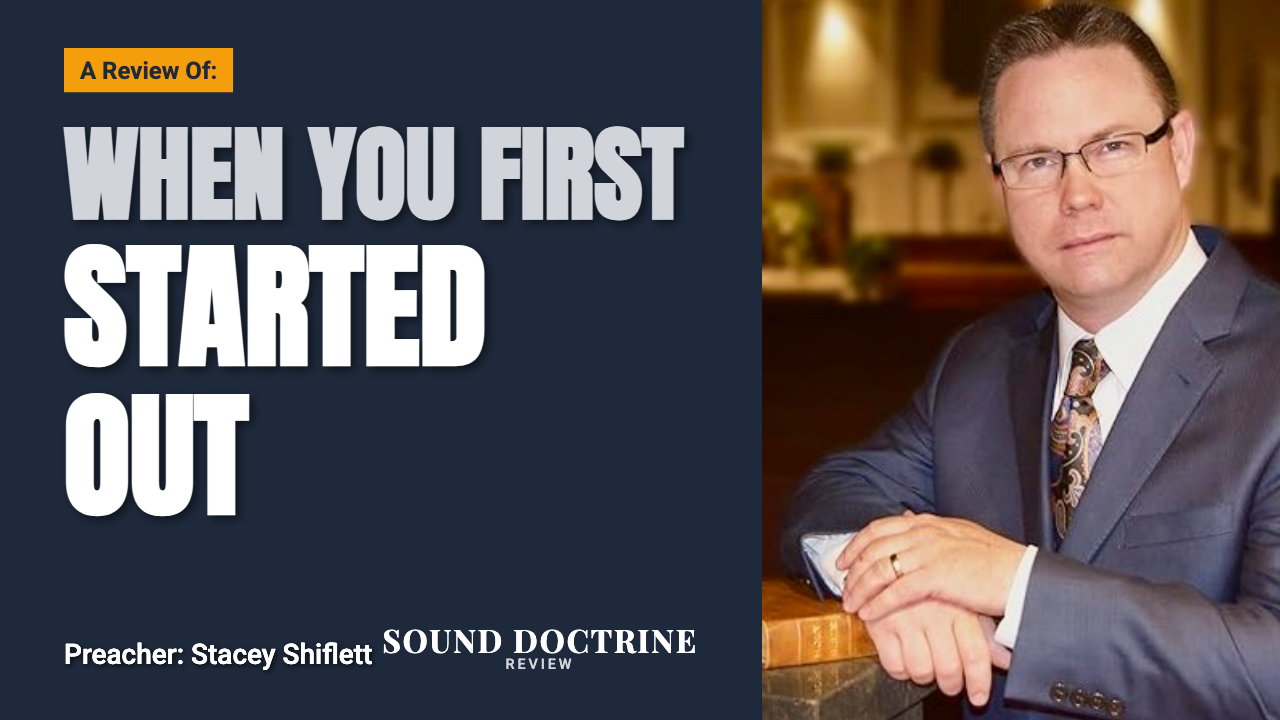
A Review of "When You First Started Out"
A Blunt Review of "When You First Started Out" by Pastor Stacey Shiflett
In his sermon "When You First Started Out," Pastor Stacey Shiflett tries to fire up the church by urging believers to recapture their early passion for God — which sounds fine in theory. But the message soon takes a strange and disappointing turn as he launches into what can only be called a social media pep talk about blocking people. Yes, really.
Shiflett boasts, "Unfollow them, unfriend them, block them," and adds with gleeful pride, "I block people every day of my life. I love it. I'm serious. It's like taking out the trash." Apparently, loving difficult people (as the Bible commands) has been replaced by curating a personal echo chamber — and Pastor Shiflett isn’t shy about it.
Even more troubling is that this isn’t just talk. Pastor Shiflett is known for blocking people who challenge him on doctrinal matters as well — believers who raise legitimate theological concerns find themselves cut off without conversation or clarification. When spiritual leaders refuse to engage in doctrinal debate or correction, the church suffers. Accountability disappears. Iron sharpens iron — unless, of course, the iron gets blocked.
The Problems With This "Trash-Taking Gospel":
-
It Trashes the Call to Love: Jesus didn’t say, "Block your enemies and brag about it." The Apostle Paul didn’t say, "If someone disagrees, mute them and pretend they don’t exist." This approach smells far more like internet culture than New Testament Christianity — shallow, impatient, and self-protecting. Shiflett’s delight in cutting people off completely misses the radical call to love, bear with, and forgive others.
-
It Dodges Doctrinal Accountability: Blocking critics is one thing. Blocking fellow believers who simply want to engage in theological discussion is another — and it raises serious concerns about spiritual integrity. The Bible encourages testing, questioning, and discerning truth together (Acts 17:11; 1 Thessalonians 5:21). Shiflett's pattern of silencing debate rather than answering it fosters spiritual weakness, not maturity.
-
It Promotes Immaturity, Not Christlike Endurance: Long-suffering — patiently bearing with others — is a fruit of the Spirit (Galatians 5:22). Shiflett’s "just block them" attitude teaches believers to escape conflict rather than grow through it. The Christian life was never meant to be safe, easy, or filtered like a feed. It was meant to be hard, refining, and full of grace toward hard people.
Conclusion:
Shiflett says he wants believers to stand firm — but his method encourages them to run, hide, and mute anyone who disagrees. When pastors dodge doctrinal debate and cut off correction, the whole church suffers. Truth sharpens through conflict, not avoidance. Blocking dissent may keep your feed clean — but it leaves your theology shallow.
This isn’t biblical strength; it’s spiritual cowardice wrapped in digital convenience. And the church deserves far better.